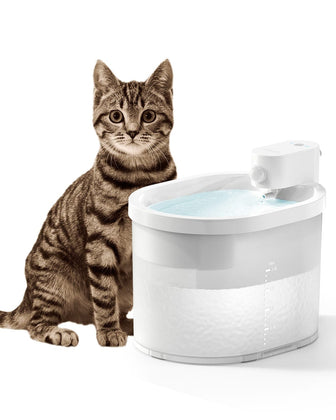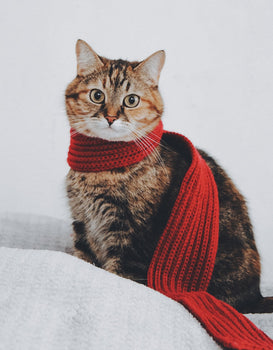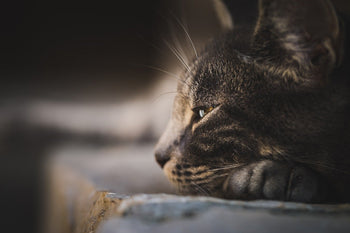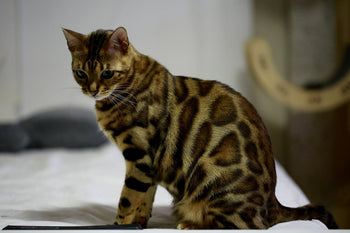Cats are notoriously finicky creatures, and this extends to their drinking habits. While water is essential for cats to stay hydrated and healthy, some cats may not drink as much water as they need. This can be due to a variety of reasons, including the taste of tap water, the location of their water bowl, or the type of container used. So, what can cats drink besides water?
Milk Alternatives for Cats Many people assume that cats can drink cow's milk, but this is not the case. Most cats are lactose intolerant, meaning they cannot digest the lactose found in cow's milk. However, there are milk alternatives that cats can safely drink, such as lactose-free cat milk or goat's milk. These options are available at most pet stores and can be a good way to supplement your cat's diet with additional liquids.
Broth and Bone Broth Another option for cats who don't drink enough water is to offer them broth or bone broth. These liquids are rich in nutrients and can be a tasty alternative to plain water. However, it's important to note that not all broths are created equal. Avoid giving your cat broths that are high in sodium or contain seasonings like garlic or onion, as these can be harmful to felines.

What Can Cats Drink Besides Water? A Guide to Feline Hydration
Key Takeaways
Cats can drink milk alternatives like lactose-free cat milk or goat's milk.
Broth and bone broth can be a tasty alternative to plain water, but avoid options high in sodium or containing harmful seasonings.
Wet food and moist treats can also help supplement your cat's liquid intake.
Related Posts:
Milk Alternatives for Cats
Cats love milk, but cow's milk can cause digestive problems for them. In fact, many cats are lactose intolerant and cannot digest lactose properly. So, what can cats drink besides water? Milk alternatives can be a good option for cats who love milk but cannot tolerate cow's milk.
Benefits of Milk Alternatives
Milk alternatives are a great way to provide cats with a tasty treat without causing digestive problems. Some of the benefits of milk alternatives for cats include:
Lactose-free: Most milk alternatives are lactose-free, which makes them safe for cats to drink.
Nutritious: Many milk alternatives are fortified with vitamins and minerals, which can be beneficial for cats.
Hydrating: Milk alternatives can help keep cats hydrated, especially if they do not drink enough water.
Introducing Milk Alternatives
When introducing milk alternatives to cats, it is important to do so gradually. Start by offering a small amount of milk alternative and monitor your cat for any signs of digestive upset. If your cat tolerates the milk alternative well, you can gradually increase the amount.
Some of the milk alternatives that cats can drink include:
Goat milk: Goat milk is a good option for cats because it is lower in lactose than cow's milk. However, it is important to choose a goat milk that is specifically formulated for cats.
Cat milk: Cat milk is a specially formulated milk that is designed for cats. It is lactose-free and contains added vitamins and minerals.
Coconut milk: Coconut milk is a good option for cats who are lactose intolerant. It is also high in healthy fats, which can be beneficial for cats.
Overall, milk alternatives can be a great way to provide cats with a tasty treat without causing digestive problems. However, it is important to choose a milk alternative that is specifically formulated for cats and to introduce it gradually to avoid any digestive upset.

Broth and Bone Broth
Cats can drink a variety of liquids besides water, including broth and bone broth. Broth is a liquid that is made by simmering meat, vegetables, or bones in water. Bone broth is similar to broth, but it is made by simmering bones and connective tissue for a longer period of time, typically 24-48 hours. Both broth and bone broth can be a great way to add hydration and nutrients to a cat's diet.
Hydrating with Broth
Broth can be a good way to add hydration to a cat's diet, especially if the cat is not drinking enough water. Broth can also be a good way to add flavor to a cat's food, which can be helpful if the cat is a picky eater. When giving a cat broth, it is important to make sure that the broth does not contain any ingredients that are harmful to cats, such as onions or garlic.
Homemade Broth Recipes
Homemade broth can be a great way to ensure that the broth does not contain any harmful ingredients. Here are a few recipes for homemade broth that are safe for cats:
Chicken Broth: Simmer chicken bones and meat in water for several hours. Remove the bones and meat, and strain the broth before serving to your cat.
Fish Broth: Simmer fish bones and meat in water for several hours. Remove the bones and meat, and strain the broth before serving to your cat.
Beef Broth: Simmer beef bones and meat in water for several hours. Remove the bones and meat, and strain the broth before serving to your cat.
It is important to note that while broth and bone broth can be a good way to add hydration and nutrients to a cat's diet, they should not be the primary source of hydration. Cats still need access to fresh, clean water at all times.
Wet Food and Moist Treats

Importance of Wet Food
Cats are obligate carnivores and require a diet rich in animal protein. Wet food is an excellent way to provide cats with the hydration they need while also providing them with the necessary nutrients. Wet food has a high moisture content, which can help prevent dehydration, especially in cats that do not drink enough water.
Wet food is also beneficial for cats with certain health conditions, such as urinary tract issues. The increased moisture content in wet food can help prevent the formation of crystals in the urinary tract, which can lead to blockages.
Suggesting Moist Treats
In addition to wet food, there are also moist treats that can help keep cats hydrated. Some examples of moist treats include canned tuna, cooked chicken, and small amounts of wet food. When offering moist treats, it is important to ensure that they are not high in salt or other additives that can be harmful to cats.
It is important to note that while wet food and moist treats can be beneficial for cats, they should not be the sole source of hydration. Fresh, clean water should always be available for cats to drink.
Overall, wet food and moist treats can be a great way to provide cats with the hydration they need while also providing them with the necessary nutrients. By incorporating these options into a cat's diet, owners can help ensure that their feline friends stay healthy and hydrated.
Conclusion
Cats need to drink plenty of water to maintain their health and prevent dehydration. However, some cats may be picky about their water source or may have medical conditions that require alternative sources of hydration.
In addition to water, cats can drink other liquids such as milk, broth, and tuna juice. However, it is important to note that not all cats can tolerate these liquids and some may even be harmful. For example, cow's milk can cause gastrointestinal upset in adult cats due to lactose intolerance. Therefore, lactose-free cat milk or milk alternatives such as almond milk or oat milk may be a better option.
When offering alternative sources of hydration, it is important to provide them in moderation and as a supplement to water, not a replacement. It is also important to ensure that the liquids are fresh and free from contaminants.
In conclusion, providing fresh water and encouraging cats to drink enough of it is crucial for their health. However, if a cat is not drinking enough water or has medical conditions that require alternative sources of hydration, there are safe and appropriate options available.

Frequently Asked Questions
What types of milk are safe for cats to consume?
Cats can drink cat milk, which is specifically formulated for felines and is lactose-free. However, adult cats are actually lactose intolerant, and drinking cow's milk, plant milk, or any other type of milk can cause gastrointestinal upset. It is important to note that milk should not replace water as a primary source of hydration for cats.
Are there any fruit juices that are safe for cats to drink?
Cats can drink a limited amount of apple juice, but it should only be offered infrequently. It is important to make sure the juice is 100% pure and does not contain any added sugars or sweeteners. Other fruit juices are not recommended for cats as they are high in sugar, which can lead to obesity and other health issues.
Can cats have any electrolyte solutions like Pedialyte?
Pedialyte and other electrolyte solutions are not recommended for cats unless specifically prescribed by a veterinarian. These solutions are designed for humans and may contain ingredients that are harmful to cats. If a cat is dehydrated or experiencing an electrolyte imbalance, it is important to consult with a veterinarian for appropriate treatment.
What are some safe liquid treats I can offer to my cat?
Cats can enjoy a variety of liquid treats, such as bone broth or tuna water. These treats can be a great way to provide additional hydration and nutrition for cats. It is important to make sure that these treats are offered in moderation and do not replace water as a primary source of hydration.
Is it safe for cats to drink beverages with lactose substitutes?
Beverages with lactose substitutes, such as almond milk or soy milk, are not recommended for cats. These substitutes may contain ingredients that are harmful to cats and can lead to gastrointestinal upset. It is important to stick to cat-specific products, such as cat milk, when offering alternative beverages to cats.
What should I avoid giving my cat to drink?
Cats should avoid drinking beverages that contain caffeine, alcohol, or any type of sweetener, including artificial sweeteners. These ingredients can be toxic to cats and can cause serious health issues. Additionally, cats should not drink any type of human medication or cleaning products, as these can also be harmful to their health.
















